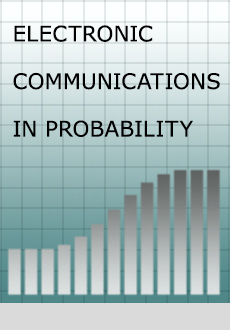Abstract
Motivated by a problem posed by Aldous [2, 1] our goal is to find the maximal-entropy win-martingale:
In a sports game between two teams, the chance the home team wins is initially and finally 0 or 1. As an idealization we take a continuous time interval and let be the probability at time t that the home team wins. Mathematically, is modelled as a continuous martingale. We consider the problem to find the most random martingale M of this type, where ‘most random’ is interpreted as a maximal entropy criterion. In discrete time this is equivalent to the minimization of relative entropy w.r.t. a Gaussian random walk. The continuous time analogue is that the max-entropy win-martingale M should minimize specific relative entropy with respect to Brownian motion in the sense of Gantert [20]. We use this to prove that M is characterized by the stochastic differential equation
To derive the form of the optimizer we use a scaling argument together with a new first order condition for martingale optimal transport, which may be of interest in its own right.
Funding Statement
We acknowledge support by the Austrian Science Fund FWF through projects P36835, Y0782, and P35197.
Citation
Julio Backhoff-Veraguas. Mathias Beiglböck. "The most exciting game." Electron. Commun. Probab. 29 1 - 12, 2024. https://doi.org/10.1214/24-ECP574
Information





